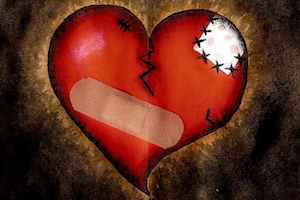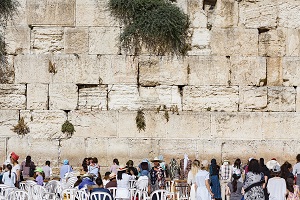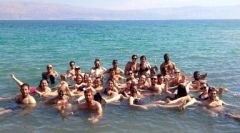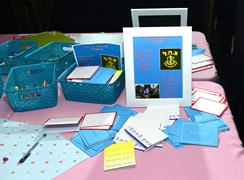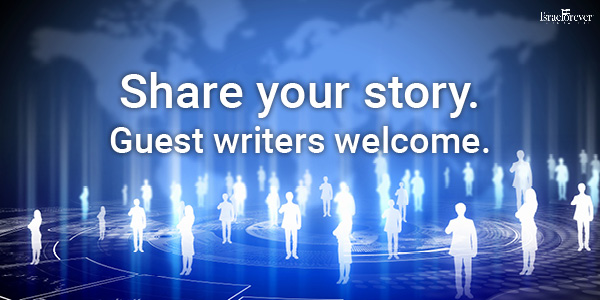Lessons from My Grandfather
By Dillon Pérez
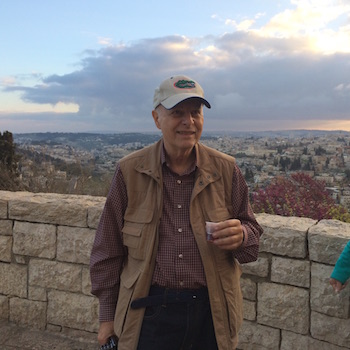
To call myself a “nonaffiliated” Jew was once a major understatement. Coming from a mixed background, I conceptualized Judaism as being a gross denial of my multifaceted identity. To embrace it would have meant surrendering every other major identity I held dear, and thus, I dabbled in everything from atheism to Catholicism, saying “Next year in Jerusalem!” at the end of every Passover Seder just because it was expected of me.
Two weeks into my freshman year, however, I was told that my Jewish grandfather had been diagnosed with ALS. Over the course of just one year, I saw my grandfather gradually succumb to this horrific illness. And with each day until his death, I had to struggle with the reality that our strained relationship would never be fully healed. His Judaism was the essence of his life, and I had spent the better part of my own life rejecting that very essence.
All connection to my grandfather seemed lost until my mother handed me a copy of his autobiography, written only two months before his passing. Seeking to learn more about the man who served as the patriarch of my family for so many years, I eagerly read through this short book. I hoped that by reading my grandfather’s final recollections, I could finally gain a deeper sense as to why Judaism, and more importantly, the Jewish people, mattered so much to him.
The stories I read about Grandpa were sensational: how his family survived the Holocaust, how he took a ship across the Atlantic to reach America, how he snuck out of the yeshiva to see the Brooklyn Dodgers, how he fell in love with my grandmother in Washington Heights, and how, in the midst of his life’s many challenges, he developed a deep and enduring love for the State of Israel. My grandfather went as far as to write, “Of course I have dual loyalties to the United States and Israel. I believe it is the duty of every Jew in the Diaspora to do so.” Fascinated by this statement, I was motivated to do some research and quickly learned that I, too, was a Jew in the Diaspora. That is, I am a Jewish person living outside the State of Israel today.
So, “Next year in Jerusalem!” At some point during this past week, Jews from all over the Diaspora took a spirited moment at the end of their seders to imagine life in the Promised Land. If for only a moment, we all embraced the hopes and dreams of people like my grandfather, who saw in Israel a history and future shared and shaped by Jews throughout the world. Unfortunately, I think too few of us Diaspora Jews took the next moment to ponder the fact that millions of people like us are already living freely in the Promised Land. In Israel, right now, our close cousins are reaching out to us to visit and support them, encouraging us to continue a history of being vital in our shared homeland’s development. Indeed, right now, our support has never been more important.
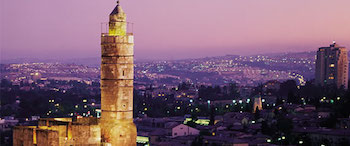
The Jewish people are now facing several frightening realities. From the shake-up within Britain’s Labour Party to the language being used within both America’s radical left and radical right, anti-Semitism is undeniably increasing. From the recent bombing of a Jerusalem bus to the targeting of a kosher meat market in Paris, terrorism is only being emboldened. Even if we, Jews in the Diaspora, disagree with Israel’s responses to these crises, it is our duty to be engaged with and support her continued existence; it would be the denial of everything our ancestors entrusted in us to give up on the dream that the Jewish people could unite and be a beacon of light onto the world.
Last year, I stood by my grandfather’s casket and had the choice of giving up on Judaism or truly reembracing it. I chose the latter.
Today, the Jewish people are standing by a world filled with injustice, and we have the choice of being apathetic or responding to this evil as a collective force for positive change. I hope we all choose the latter.
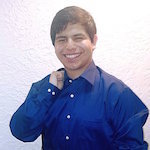
Dillon Perez is a Judaic Studies and Psychology major at Tulane University currently interning with Israel Forever.

